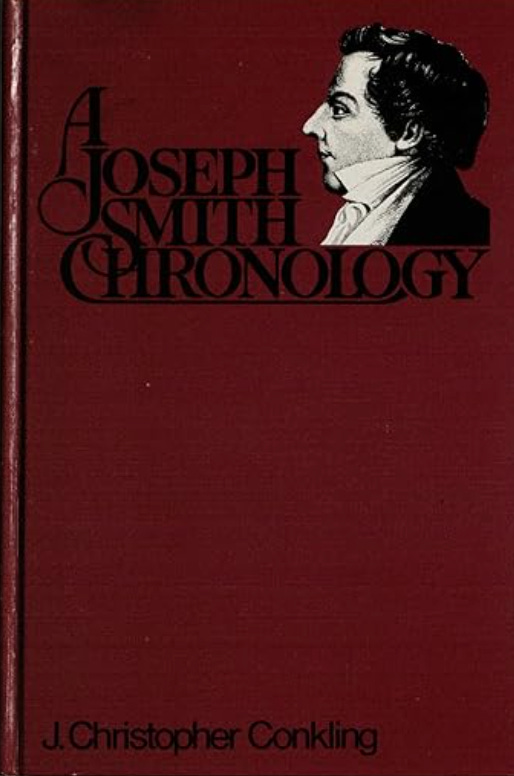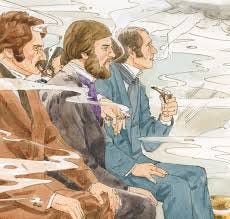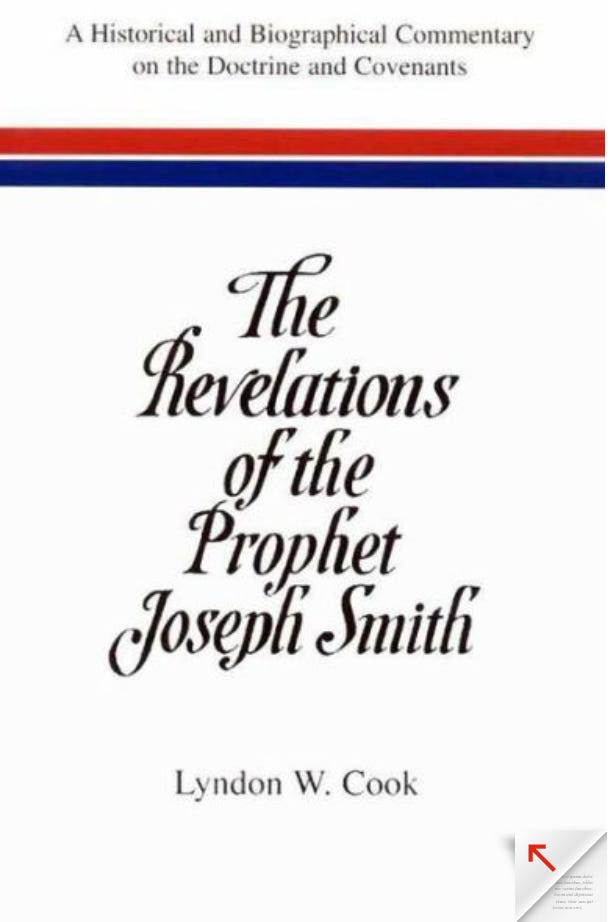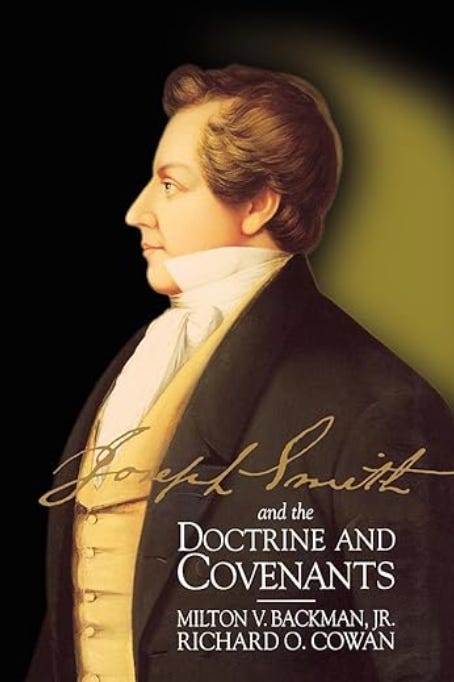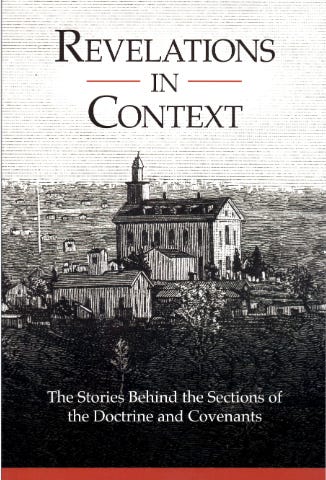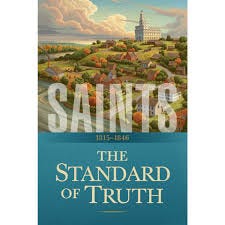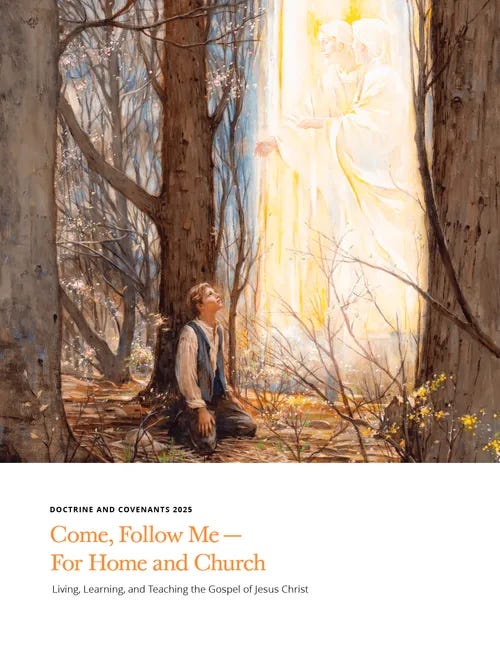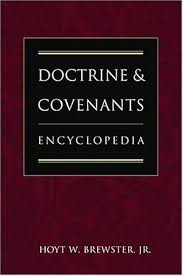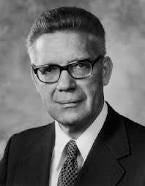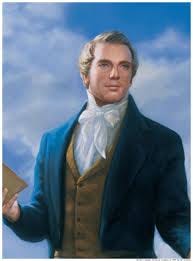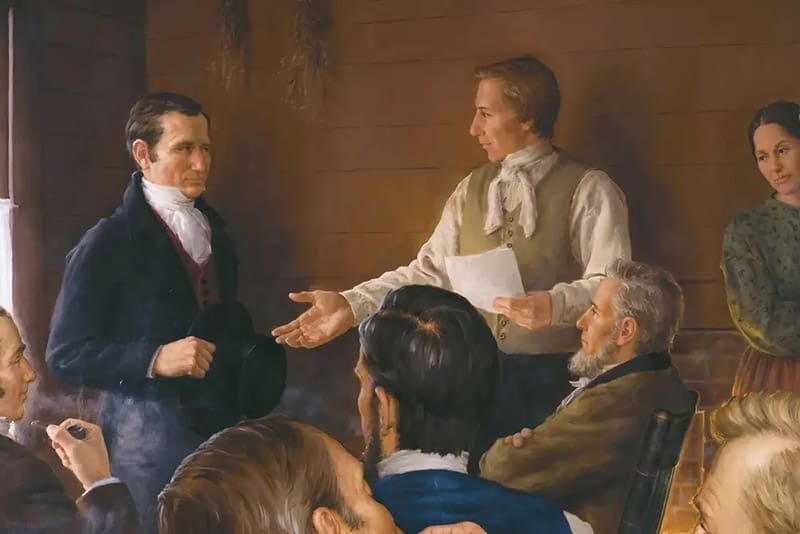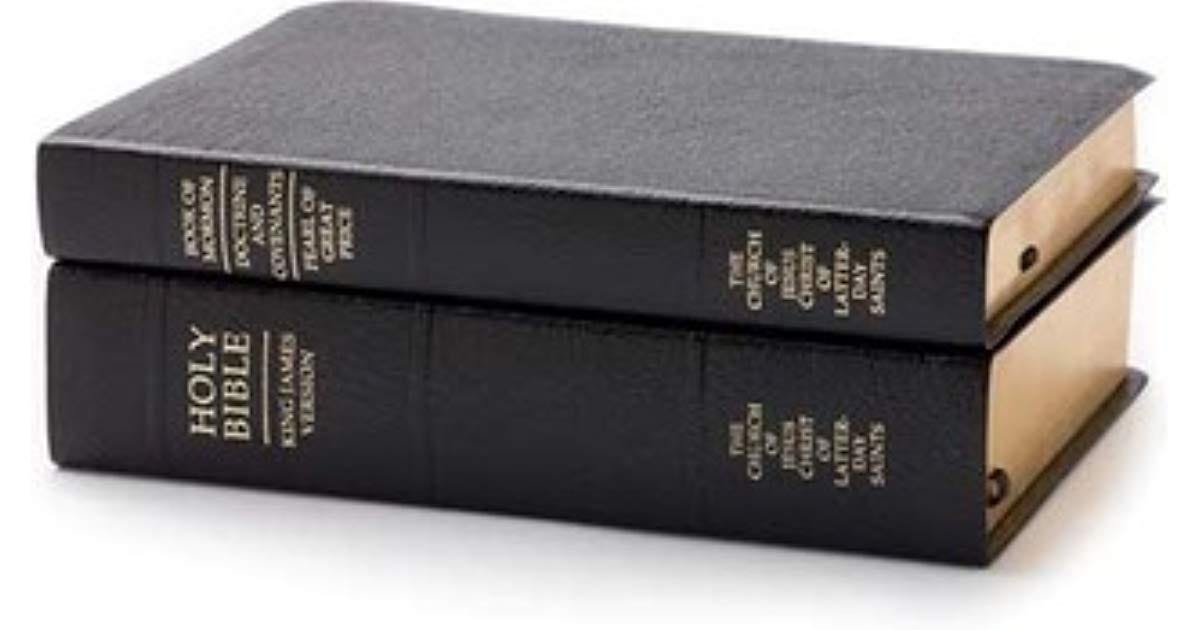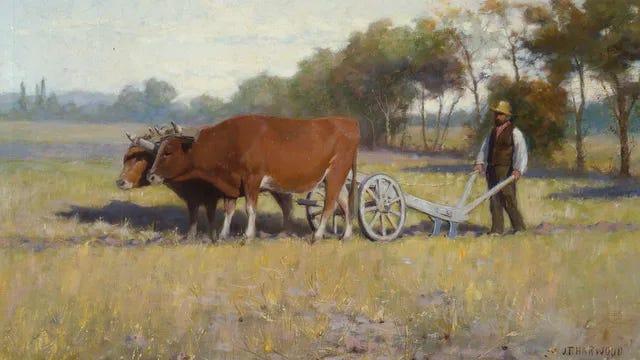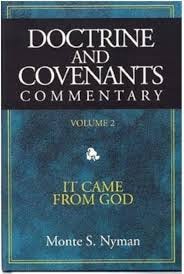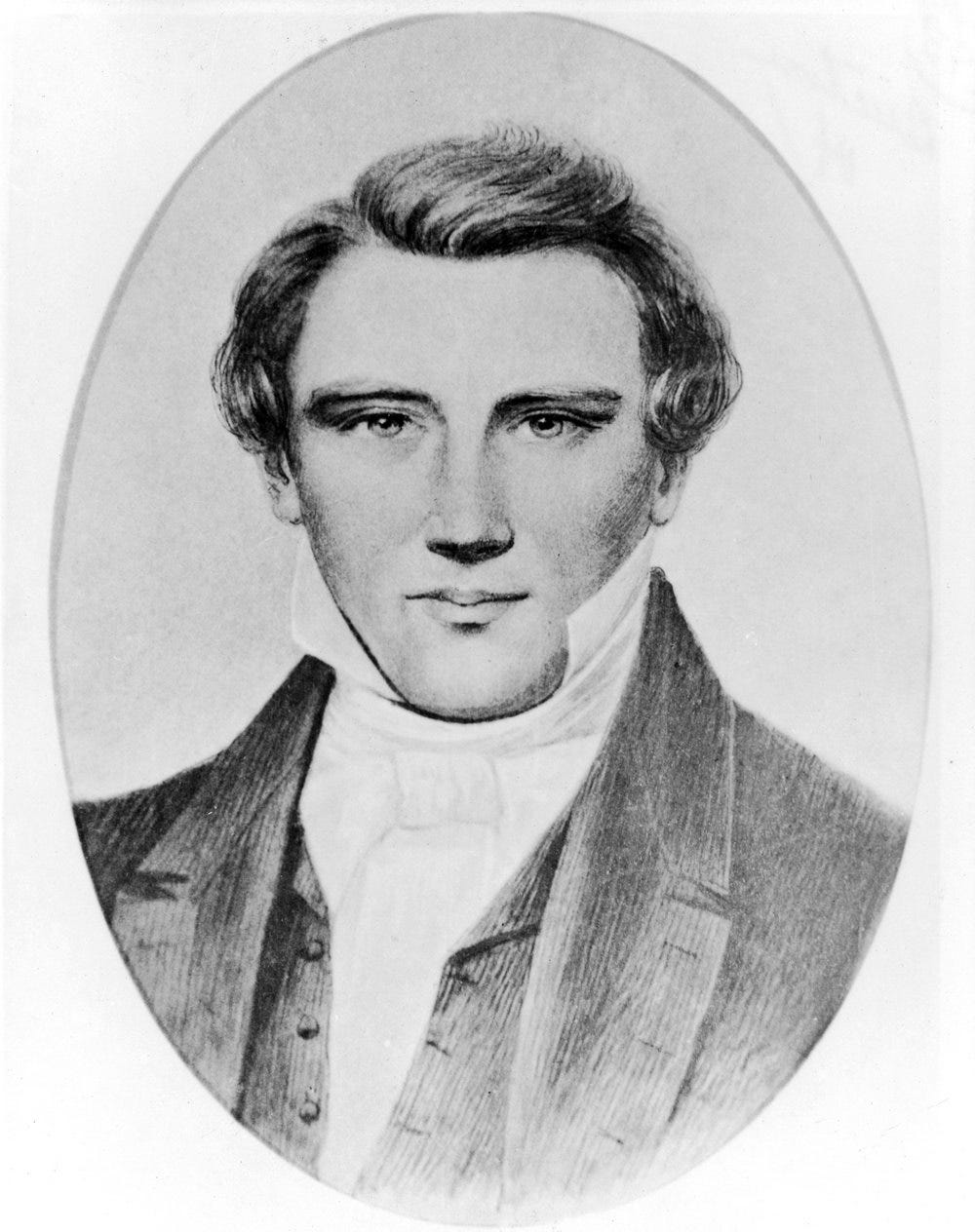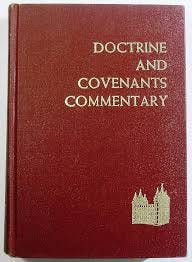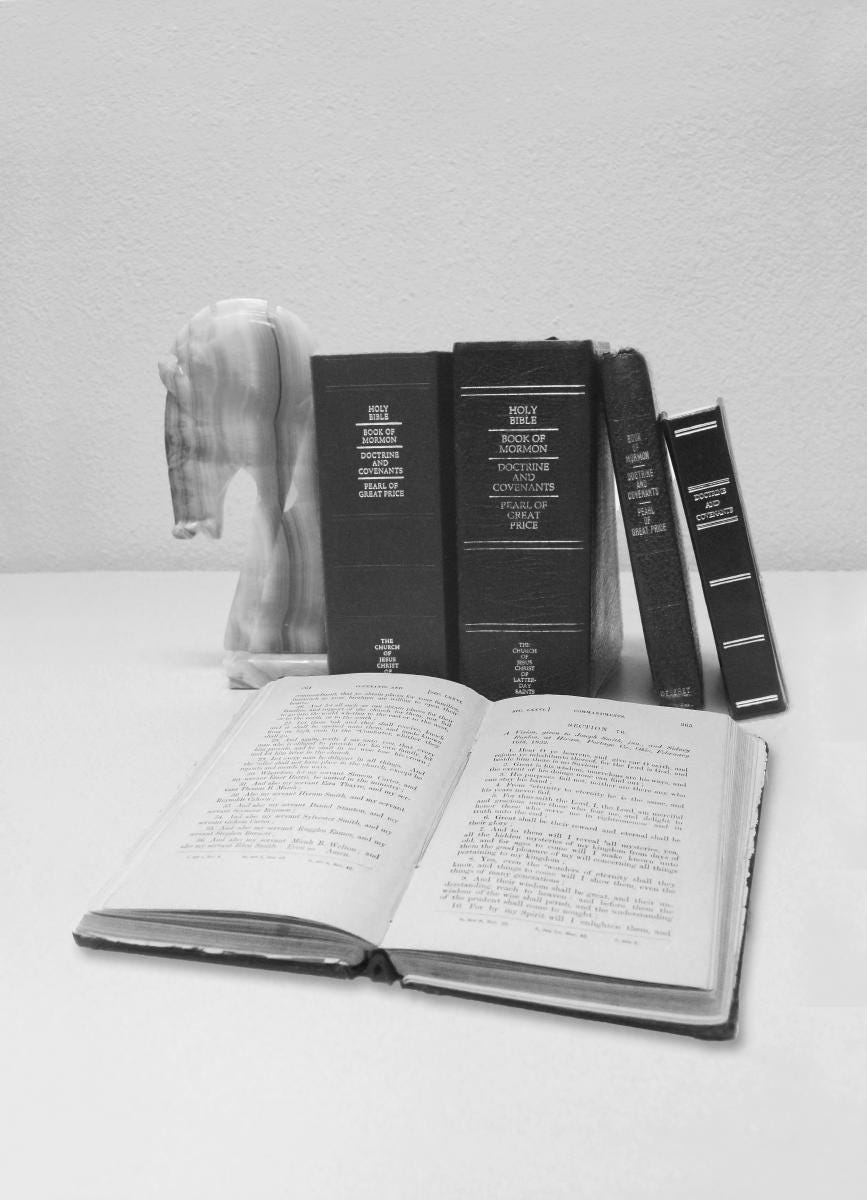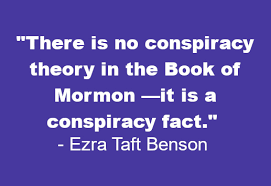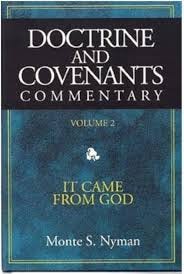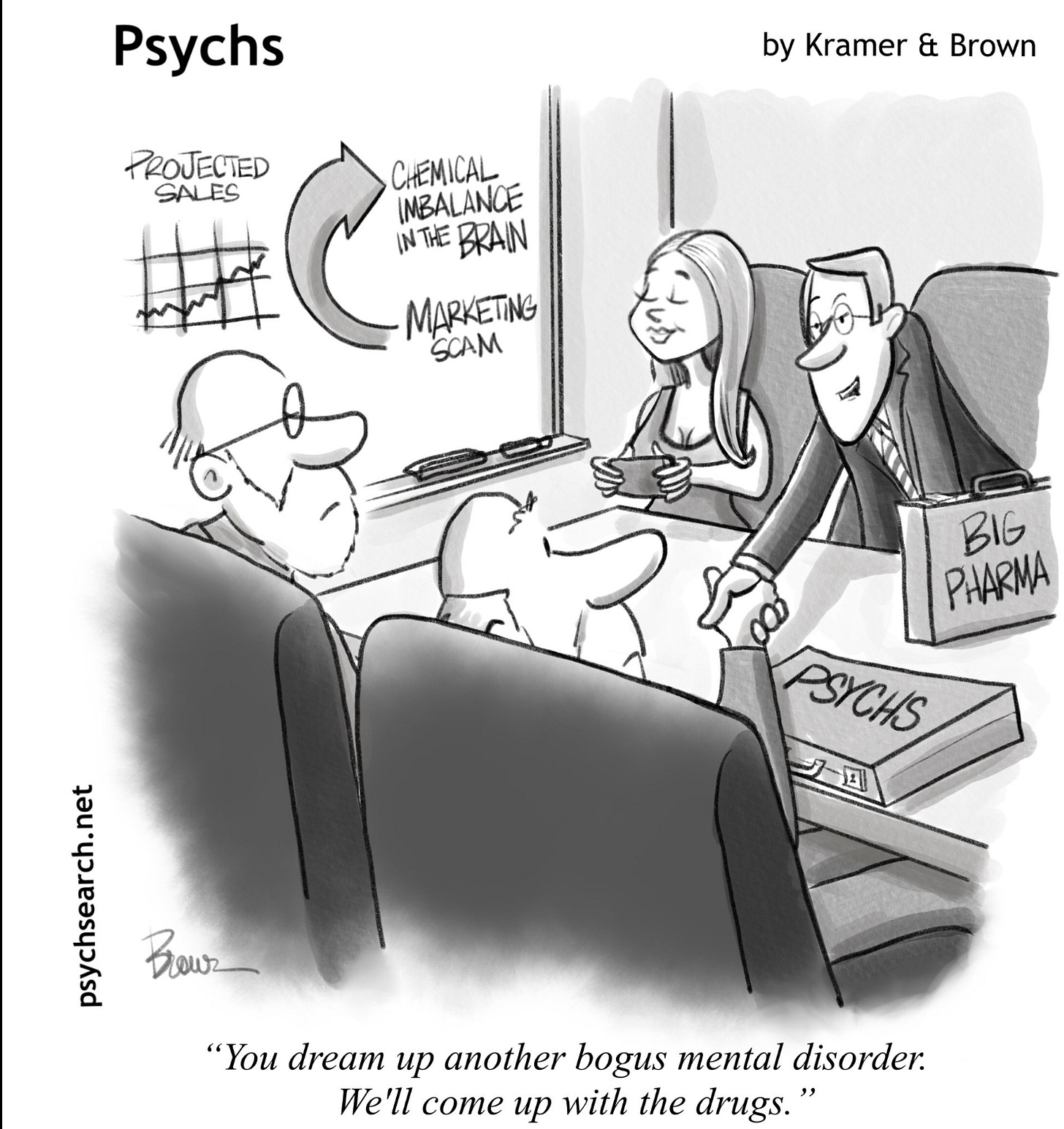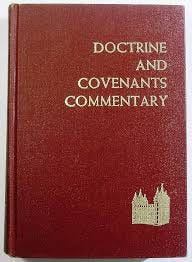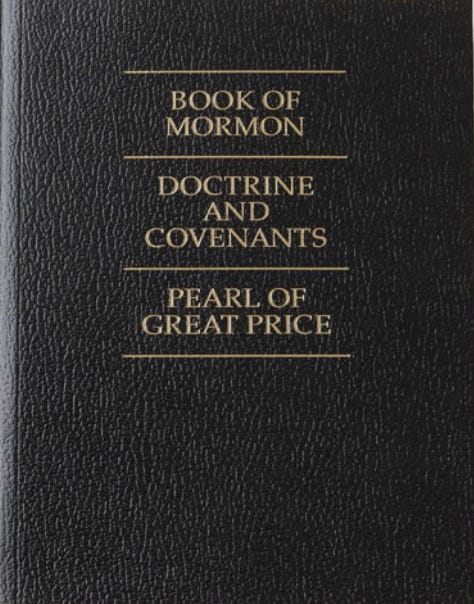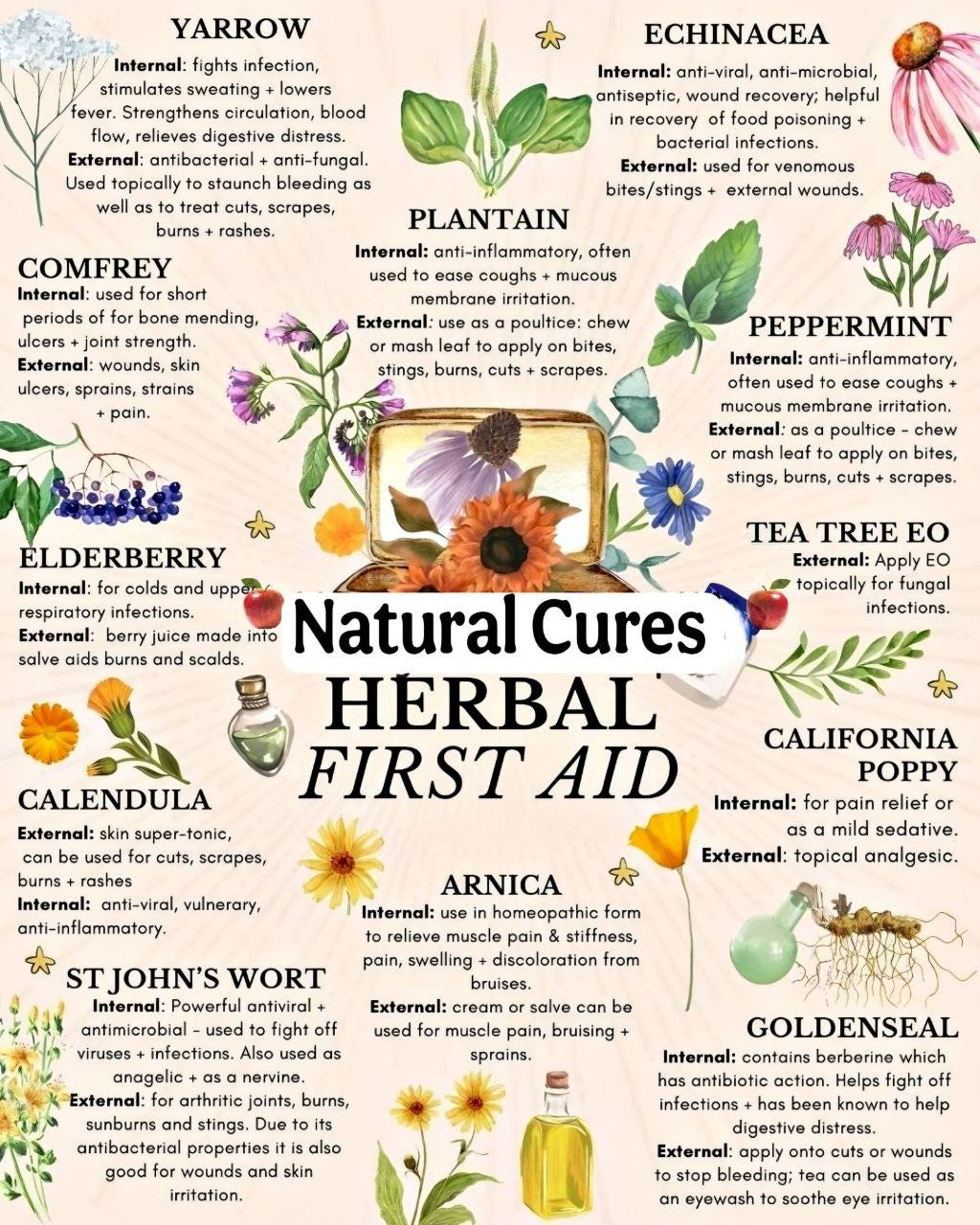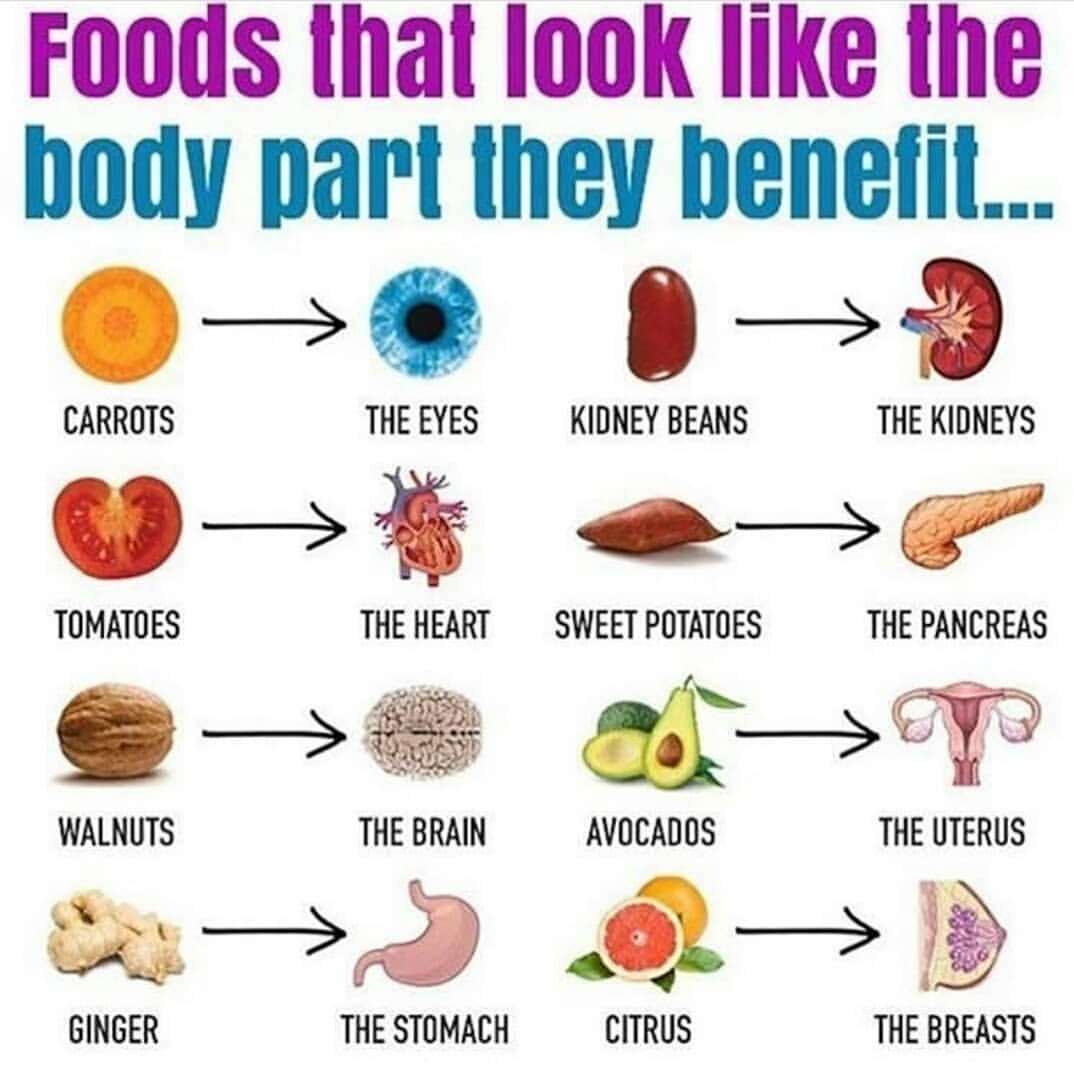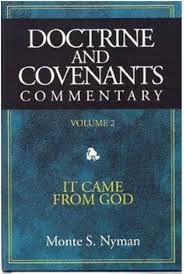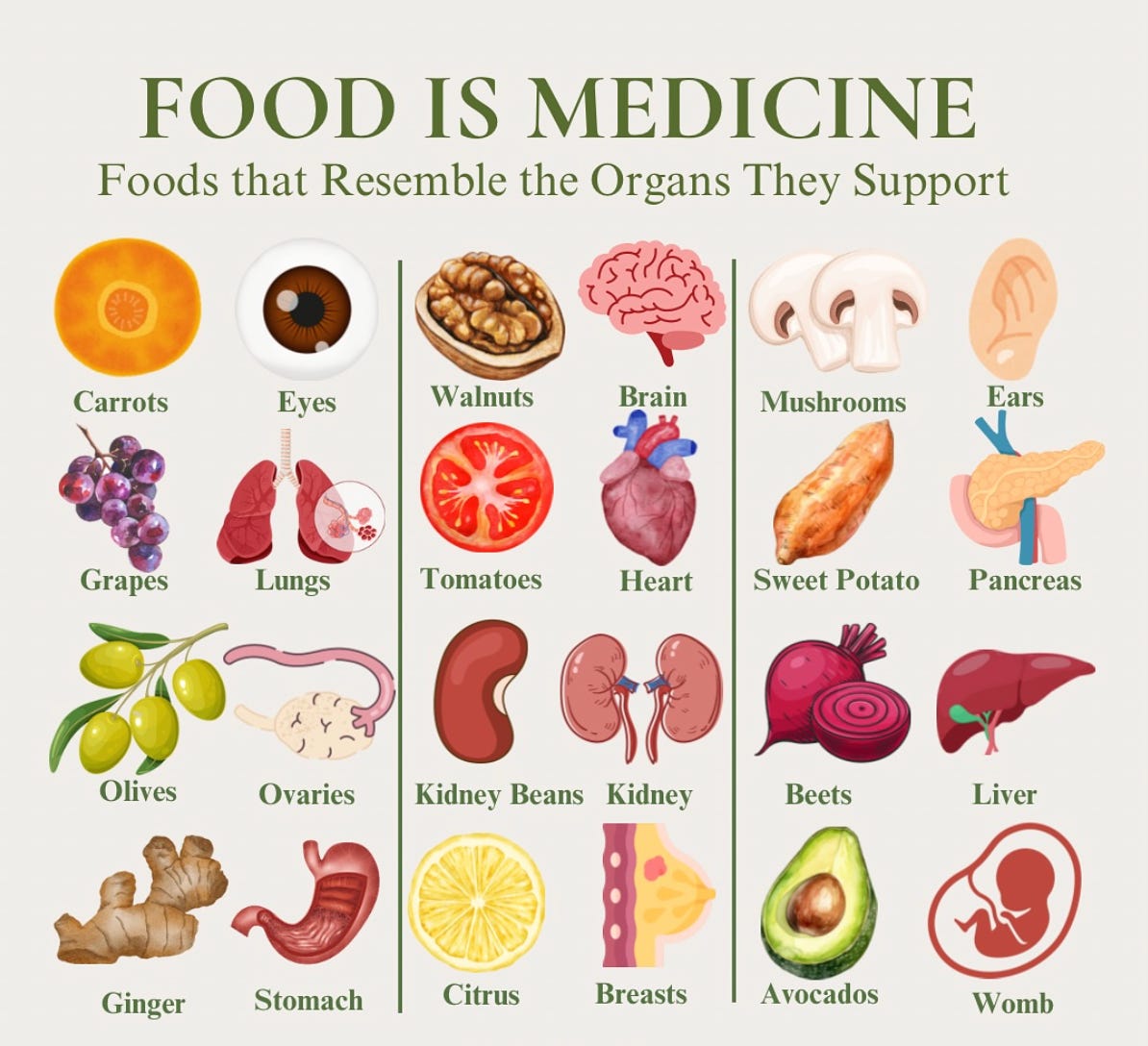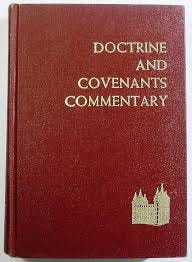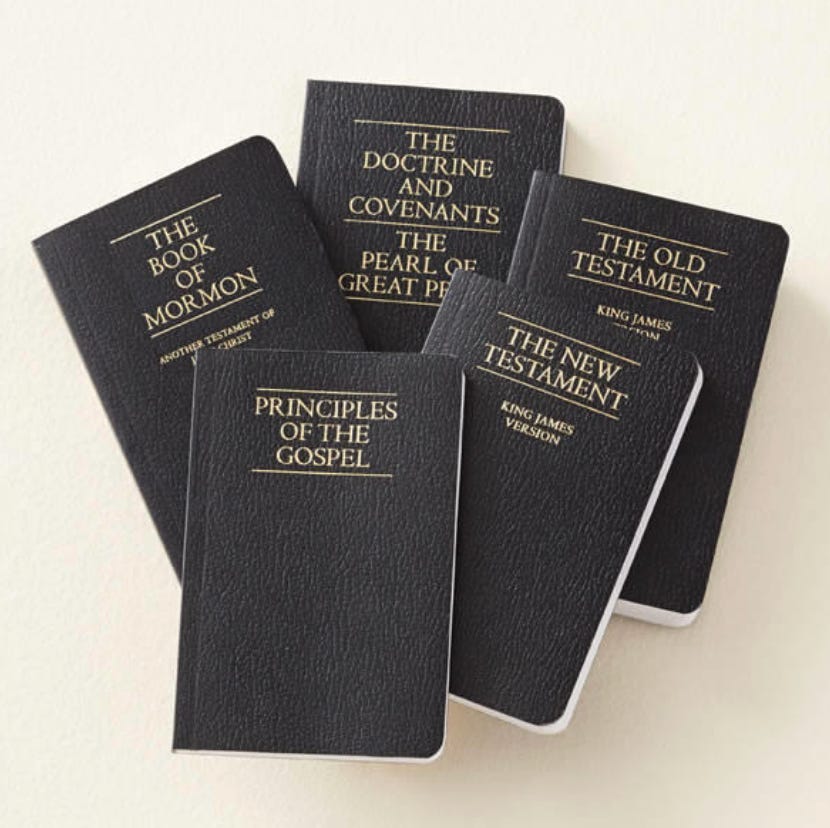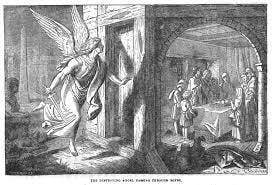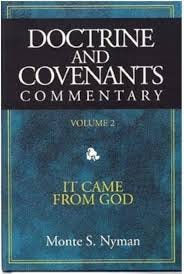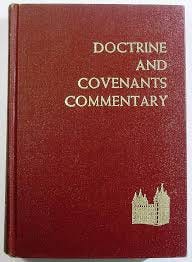A Principle with Promise
Historical Background and Reflections on Doctrine and Covenants Section 89
What is the historical background for Doctrine and Covenants Section 89?
In his book A Joseph Smith Chronology, J. Christopher Conkling records the following timeline for this revelation:
Jan. 4, 1833
Joseph writes a long letter to New York newspaper editor N. E. Seaton. The letter explains the plan of God in the latter days, the coming bloodshed, and the reasons for the plagues that are covering the land (such as the Asiatic cholera). Joseph says, “I think that it is high time for a Christian world to awake out of sleep…. this is what has caused me to overlook my own inability, and expose my weakness to a learned world…. I step forth into the field to tell you what the Lord is doing, and what you must do to enjoy the smiles of your Savior in these last days.” (HC 1:312-16.)
Jan. 14, 1833
A conference is held in the Kirtland Mills (Kirtland, Ohio). Orson Hyde and Hyrum Smith are appointed to write a letter to Zion (Missouri) telling the people not to complain against Joseph, to repent, that they are loved by the Kirtland Saints, and that the School of the Prophets will commence in two or three days. Joseph writes to W. W. Phelps in Independence, sending him D&C 88, the “Olive Leaf,” and telling him to make the Star more interesting: “For if you do not render it more interesting than at present, it will fall, and the Church suffer a great loss thereby.” (HC 1:316-17.)
Winter 1833
Joseph spends most of the winter translating the scriptures, sitting in conferences, writing letters, and attending the School of the Prophets. Brigham Young, Joseph Young, and Heber C. Kimball spend the same time on a mission to the are around Kingston, Canada. They baptize 45 persons and organize three branches.
Jan. 22-23, 1833
A conference is held with several high priests and elders. Joseph speaks in another tongue, as do other elders. The next day they assemble again and participate in the ordinance of the washing of feet. (See John 13:4-15). Each elder washes his own feet and then Joseph washes their feet. Joseph receives a father’s blessing from Joseph Smith, Sr. F. G. Williams then asks permission to wash Joseph’s feet, and does so. They partake of the sacrament.
Jan. 24, 1833
According to Zebedee Coltrin, the School of the Prophets commenced on this day.
Feb. 2, 1833
On this day Joseph records, “I completed the translation and review of the New Testament, on the 2nd of February, 1833 and sealed it up, no more to be opened till it arrived in Zion.” (HC 1:324.) It appears that Joseph translated Genesis 24:42a-Malachi 4:6 between this date and July 2, 1833.
Feb. 12, 1833
Joseph writes a second letter to Mr. Seaton (see Jan. 4, 1833) requesting that he publish Joseph’s whole letter, not just part of it, as it has been given by a commandment of God.
Feb. 26, 1833
A solemn assembly is held in Zion (Missouri), to discuss D&C 88 and the various letters of Jan. 14, 1833.
Feb. 27 1833
Joseph receives D&C 89. According to Brigham Young the School of the Prophets was meeting in Joseph’s kitchen, a small room in the house attached to the store owned by Bishop Whitney. As the brethren would gather after breakfast, they would immediately light their pipes, filling the room with smoke, or they would begin to chew tobacco, spitting it on the floor. After the complaints of his wife, Joseph prayed about the problem and received the above revelation. (See JD 12:157-58.) (For the health fads of the day, see A&L 95.) (pp. 38-39)
In his book The Revelations of the Prophet Joseph Smith, Lyndon W. Cook sheds more light on, and shares more details about, the historical background for this revelation:
Date. 27 February 1833.
Place. Kirtland, Geauga County, Ohio.
Historical Note. Section 89, known as the “Word of Wisdom,” was received at a meeting of the School of the Prophets in the upper level of the Whitney store. Zebedee Coltrin, present when this revelation was received, clarified that although twenty-two brethren were in attendance that day, section 89 was received in an adjoining room, in the presence of two or three brethren.
Although not in attendance on 27 February 1833, Brigham Young later stated that he was well acquainted with the circumstances surrounding the reception of section 89. In 1868 President Young declared,
“The first school of the prophets was held in a small room situated over the Prophet Joseph’s kitchen, in a house which belonged to Bishop Whitney, and which was attached to his store, which store probably might be about fifteen feet square. In the rear of this building was a kitchen, probably ten by fourteen feet, containing rooms and pantries. Over this kitchen was situated the room in which the Prophet received revelations and in which he instructed his brethren. The brethren came to that place for hundreds of miles to attend school in a little room probably no larger than eleven by fourteen. When they assembled together in this room after breakfast, the first they did was to light their pipes, and, while smoking, talk about the great things of the kingdom, and spit all over the room, and as soon as the pipe was out of their mouths a large chew of tobacco would then be taken. Often when the Prophet entered the room to give the school instructions he would find himself in a cloud of tobacco smoke. This, and the complaints of his wife at having to clean so filthy a floor, made the Prophet think upon the matter, and he inquired of the Lord relating to the conduct of the Elders in using tobacco, and the revelation known as the Word of Wisdom was the result.
Publication Note. Section 89 was first published on a broadsheet in December 1833 or January 1834 and was included as section 80 in the 1835 edition of the Doctrine and Covenants. (pp. 191-192)
In their book Joseph Smith and the Doctrine & Covenants, Milton V. Backman, Jr. and Richard O. Cowan devote an entire chapter entitled “The Lord’s Law of Health” to this revelation:
One of the best-known revelations in the Doctrine and Covenants is section 89, the Word of Wisdom. The proponents of temperance had created a climate in which these divinely revealed principles could be accepted more readily.
Setting for the Revelation
In 1830, Sylvester Graham, a former Presbyterian minister who was serving as president of the Pennsylvania Temperance Society, delivered in Philadelphia a series of lectures on health. He said in essence that five poisons were afflicting the American public: liquor, tobacco, tea, coffee, and opium. He advanced a system of diet in which adults were to abstain from eating meat, gravy, spices, cheese, and eggs and to refrain from drinking milk. He further advocated that individuals should drink rain water and eat fresh fruits and vegetables and bread made from unsifted flour. Although his name has since been relegated to a few items on grocery store shelves, such as graham crackers and graham bread, Sylvester Graham became one of America’s leading health advocates before the Civil War.
There is no evidence that Joseph Smith learned about the Graham system prior to unfolding the Word of Wisdom, but it is known that idea popularized by Sylvester Graham were being discussed in various journals of health. Graham acknowledged that he was influenced by reading the writings of others. As a man, Joseph Smith did not have the education or background necessary to select correct principles from the myriad of health ideas and fads that were being circulated by his generation; but, as a prophet, he recorded enduring principles of health that have been substantiated by twentieth-century research (Backman, Heavens Resound, p. 236).
The most detailed description of the immediate setting of the Word of Wisdom (Section 89) was given in a sermon by President Brigham Young in February 1868:
“When the school of the prophets was inaugurated one of the first revelations given by the Lord to His servant Joseph was the Word of Wisdom. The members of that school were but a few at first, and the prophet commenced to teach them in doctrine to prepare them to go out into the world to preach the gospel unto all people, and gather the elect from the four quarters of the earth, as the prophets anciently have spoken. While this instruction prepared the Elders to administer in word and doctrine, it did not supply the teachings necessary to govern their private or temporal lives; it did not say whether they should be mer chants, farmers, mechanics, or money changers. The prophet began to instruct them how to live that they might be the better prepared to perform the great work they were called to accomplish. I think I am as well acquainted with the circumstances which led to the giving of the Word of Wisdom as any man in the Church, although I was not present at the time to witness them. The first school of the prophets was held in a small room situated over the Prophet Joseph's kitchen, in a house which belonged to Bishop Whitney, and which was attached to his store, which store probably might be about fifteen feet square. In the rear of this building was a kitchen, probably ten by fourteen feet, containing rooms and pantries. Over this kitchen was situated the room in which the Prophet received revelations and in which he instructed his brethren. The brethren came to that place for hundreds of miles to attend school in a little room probably no larger than eleven by fourteen. When they assembled together in this room after breakfast, the first they did was to light their pipes, and, while smoking, talk about the great things of the kingdom, and spit all over the room, and as soon as the pipe was out of their mouths a large chew of tobacco would then be taken. Often when the Prophet entered the room to give the school instructions he would find himself in a cloud of tobacco smoke. This, and the complaints of his wife at having to clean so filthy a floor, made the Prophet think upon the matter, and he inquired of the Lord relating to the conduct of the Elders in using tobacco, and the revelation known as the Word of Wisdom was the result of his inquiry” (Journal of Discourses, 12:157-58).
Acceptance of the Word of Wisdom
Zebedee Coltrin remembered that after the Prophet came out of the translating room, he read the revelation on the Word of Wisdom to members of the School of the Prophets. “Twenty our of the twenty-one” present, he said, “used tobacco and they all immediately threw their tobacco and pipes into the fire” (Minutes, Salt Lake School of Prophets, 13 Oct. 1833, pp. 55-56).
Joel Johnson was present when the revelation was introduced to members of the Church, and he recalled some of the challenges and controversies that confronted members as they attempted to abide by this law of health:
“I was then [February 1833] thirty one years of age, and had used tobacco somewhat extravagantly for fifteen years. I always used some strong drink, and tea and coffee.
“I know that God had spoken and condemned the use of these things, and, being determined to live by every word that proceeded from His mouth, I laid them all aside, and have not used them since.
“I well remember that, soon after the publication of the Word of Wisdom, the same excuse was made, by some of the people, for drinking tea and coffee is now made - that hot drinks did not mean tea and coffee.
“On a Sabbath day, in the July following the giving of the revelation, when both Joseph and Hyrum Smith were in the stand, the Prophet said to the Saints:
“‘I understand that some of the people are excusing themselves in using tea and coffee, because the Lord only said “hot drinks” in the revelation of the Word of Wisdom.’
“‘The Lord was showing us what was good for man to eat and drink. Now, what do we drink when we take our meals?’
“‘Tea and coffee. Is it not"?’
“‘Yes; tea and coffee.’
“‘Then, they are what the Lord meant when He said ‘hot drinks.’
“Brother Hyrum Smith spoke to the same effect.
“It is said all wholesome herbs are ordained for the use of man. Physicians tell us that tea and coffee are not wholesome. And the Lord says they are not for the body or the belly.
“When children see that their parents slight the Word of Wisdom, they are apt to follow their example.
“I have recorded this testimony that all who read it may be without excuse. How pleasant it would be at last, if we could say to our Heavenly Father, ‘I have obeyed all your counsels,’ and hear these kind words in return: ‘Well done! thou hast been faithful over a few things, be thou ruler over many’” (Voice from the Mountains, pp. 12-13).
Many members of the Church confirmed in their writings that the phrase “hot drinks” was interpreted as tea and coffee. Elizabeth Tanner recorded her response to the revelation: “When the Word of Wisdom was preached we discarded the use of tea, coffee, and spiritous liquors,” for she and her husband, John Tanner, strove diligently to observe “all the laws of the Church” (“Autobiography,” p. 1).
Although various quorums of the Church voted that the Saints should totally abstain from using alcohol, tobacco, and hot drinks (tea and coffee), serious problems developed over a strict application of these policies. Because of the Saints’ widespread use of these substances and their deep-seated attachment to them, by mid 1834 many emphasized that the preface said that this revelation was to be regarded as general advice, not as a commandment. Even so, zealous leaders and members pressed for compliance with the original meaning of the revelation, and, in early December 1836, a vote of the Saints in Kirtland unanimously banned “all liquors from the Church,” even during sickness, except for wine for the sacrament and liquor for “external washing” (“Journal of Wilford Woodruff”; Backman and Cook, Kirtland Elders’ Quorum Record, p. 32). The policy, however, continued to be a controversial issue, and many Saints believed that the use of stimulants during sickness, fatigue, and depression was not in violation of the Word of Wisdom. Subsequently, there are many casual references in Joseph Smith’s history of Church members drinking wine.
Throughout the early history of the Church, many members struggled to discontinue smoking, chewing tobacco, and drinking tea, coffee, and alcoholic beverages. Mary Winters, whose mother married Parley P. Pratt after the death of Elder Pratt’s wife, described her mother’s plan to conquer her temptations: “In those days, snuff-taking was quite fashionable. My father had given mother a very pretty snuff box, and though she had not practiced using snuff herself, she had the box filled and a nice vanilla bean in it to scent the snuff, and when old ladies came to see her, she would pass it around to them. It was also customary for people in trouble to smoke or take snuff to soothe their feelings and pass away the time (poor souls), and this course was urged upon mother. Smoking she could not think of, as it seemed to troublesome a habit, but she had become quite used to taking snuff before she heard the gospel sound. But now after hearing the Word of Wisdom taught, she must not partake of the forbidden snuff any longer. And in her patriarchal blessing too, Word of Wisdom was spelled with large letters, so now the sacrifice must surely begin. It was her habit, immediately after eating, to take a pinch of snuff, but now instead, she placed the snuff box on the chimney piece over the letter and above the crickets, and took the Book of Mormon and sat down to read until all desire for the snuff had passed - and thus she gained the victory, with the temptation in plain sight. And oh how thankful she was in after years for the knowledge of the evil, and for the strength to overcome it” (“Autobiography,” p. 3). (pp. 80-84)
In Revelations in Context, Jed Woodworth’s chapter “The Word of Wisdom” is also instructive and enlightening:
Like many other revelations in the early Church, Doctrine and Covenants 89, also known today as the Word of Wisdom, came in response to a problem. In Kirtland, many men in the Church were called to preach in various parts of the United States. They were to cry repentance unto the people and gather in the Lord’s elect. To prepare these recent converts for their important labors, Joseph Smith started a training school called the School of the Prophets, which opened in Kirtland on the second floor of the Newel K. Whitney mercantile store in January 1833.1
Every morning after breakfast, the men met in the school to hear instruction from Joseph Smith. The room was very small, and about 25 elders packed the space.2 The first thing they did, after sitting down, was “light a pipe and begin to talk about the great things of the kingdom and puff away,” Brigham Young recounted. The clouds of smoke were so thick the men could hardly even see Joseph through the haze. Once the pipes were smoked out, they would then “put in a chew on one side and perhaps on both sides and then it was all over the floor.”3 In this dingy setting, Joseph Smith attempted to teach the men how they and their converts could become holy, “without spot,” and worthy of the presence of God.4
Tobacco
This episode in the Whitney store occurred in the middle of a massive transformation within western culture. In 1750, personal cleanliness and hygiene were infrequent, haphazard practices, mostly the concern of the wealthy and aristocratic. By 1900, regular bathing had become routine for a large portion of the population, especially the middle classes, who had adopted gentility as an ideal.5 Tobacco spitting shifted from being a publicly acceptable practice among most segments of the population to becoming seen as a filthy habit beneath the dignity of polite society. In the midst of this cultural shift, at the very moment when everyday people started to concern themselves with their own cleanliness and bodily health, the Word of Wisdom arrived to light the way.
The scene in the School of the Prophets would have been enough to give any non-tobacco user like Joseph Smith cause for concern.6 Joseph’s wife, Emma, told him that the environment concerned her. He and Emma lived in the Whitney store, and the task of scrubbing the spittle from the hardwood fell upon her. She may have complained of being asked to perform this thankless task, but there was also a more practical consideration: “She could not make the floor look decent,” Brigham Young recalled.7 The stains were impossible to get out. The whole situation seemed less than ideal for those who were called of God as these elders were, especially when we remember that the room with the filthy floor was Joseph’s “translation room,” the same place where he received revelations in the name of God. Joseph began inquiring of the Lord about what could be done, and on February 27, scarcely a month after the school started, he received the revelation later canonized as Doctrine and Covenants 89. The answer was unequivocal: “Tobacco is not for man but is for bruises & all sick cattle; to be used with judgement & skill.”8
Strong Drinks
Tobacco was just one of a host of substances pertaining to bodily health and cleanliness whose merits were hotly debated on both sides of the Atlantic Ocean at the time the Word of Wisdom was received. Discussion was so frequent because abuse was so widespread. Frances Trollope, a British novelist, reported disdainfully in 1832 that in all her recent travels in the United States, she hardly ever met a man who was not either a “tobacco chewer or a whisky drinker.”9
Drinking, like tobacco chewing, had clearly gotten out of hand. For centuries nearly all Americans had consumed large quantities of alcoholic beverages, much like their European counterparts. The Puritans called alcohol the “Good Creature of God,” a blessing from heaven to be imbibed in moderation. Alcohol was consumed at virtually every meal, in part because the unpurified water of the time was so unhealthy. Home-brewed beer was a favorite, and after 1700, British-American colonists drank fermented peach juice, hard apple cider, and rum either imported from the West Indies or distilled from molasses made there. By 1770, per capita consumption of distilled spirits alone—to say nothing of beer or cider—stood at 3.7 gallons per year.10
The American Revolution only exacerbated this reliance on alcohol. After molasses imports were cut off, Americans sought a substitute for rum by turning to whiskey. Grain farmers in western Pennsylvania and Tennessee found it cheaper to manufacture whiskey than to ship and sell perishable grains. As a consequence, the number of distilleries grew rapidly after 1780, boosted by settlement of the corn belt in Kentucky and Ohio and the vast distances to eastern markets. To the astonishment of observers like Trollope, Americans everywhere—men, women, and children—drank whiskey all day long. American consumption of distilled spirits climbed precipitously, from two and a half gallons a person in 1790 to seven gallons in 1830, the highest amount of any time in American history and a figure three times today’s consumption rate.11
This elevated alcohol consumption offended religious sensibilities. As early as 1784, both Quakers and Methodists were advising their members to abstain from all hard liquor and to avoid participation in its sale and manufacture.12 A more aggressive temperance movement took hold among the churches in the early decades of the 19th century. Alcohol became viewed more as a dangerous tempter and less as a gift from God. In 1812, the Congregational and Presbyterian churches in Connecticut recommended strict licensing laws limiting the distribution of alcohol. Lyman Beecher, a leader in this reform movement, advocated even more extreme measures, endorsing full abstinence from alcoholic beverages. The idea soon became a central plank of the American Temperance Society (ATS), organized in Boston in 1826. Members of the organization were encouraged to sign a temperance pledge not just to moderate their alcohol intake but to abstain altogether. A capital “T” was written next to the names of those who did so, and from this the word “teetotaler” was derived. By the mid-1830s, the ATS had grown to well over a million members, many of them teetotalers.13
Encouraged by the ATS, local temperance societies popped up by the thousands across the U.S. countryside. Kirtland had its own temperance society, as did many small towns.14 Precisely because alcohol reform was so often discussed and debated, the Saints needed a way of adjudicating which opinions were right. Besides rejecting the use of tobacco, the Word of Wisdom also came down against alcoholic beverages: “Inasmuch as any man drinketh wine or Strong drink among you behold it is not good, neither mete in the sight of your Father.”15
Nevertheless, it required time to wind down practices that were so deeply ingrained in family tradition and culture, especially when fermented beverages of all kinds were frequently used for medicinal purposes. The term “strong drink” certainly included distilled spirits such as whiskey, which thereafter the Latter-day Saints generally shunned. They took a more moderate approach to milder alcoholic beverages like beer and “pure wine of the grape of the vine, of your own make.”16 For the next two generations, Latter-day Saint leaders taught the Word of Wisdom as a command from God, but they tolerated a variety of viewpoints on how strictly the commandment should be observed. This incubation period gave the Saints time to develop their own tradition of abstinence from habit-forming substances. By the early 20th century, when scientific medicines were more widely available and temple attendance had become a more regular feature of Latter-day Saint worship, the Church was ready to accept a more exacting standard of observance that would eliminate problems like alcoholism from among the obedient. In 1921, the Lord inspired President Heber J. Grant to call on all Saints to live the Word of Wisdom to the letter by completely abstaining from all alcohol, coffee, tea, and tobacco. Today Church members are expected to live this higher standard.17
Hot Drinks
American temperance reformers succeeded in the 1830s in no small part by identifying a substitute for alcohol: coffee. In the 18th century, coffee was considered a luxury item, and British-manufactured tea was much preferred. After the Revolution, tea drinking came to be seen as unpatriotic and largely fell out of favor—the way was open for a rival stimulant to emerge. In 1830, reformers persuaded the U.S. Congress to remove the import duty on coffee. The strategy worked. Coffee fell to 10 cents a pound, making a cup of coffee the same price as a cup of whiskey, marking whiskey’s decline. By 1833, coffee had entered “largely into the daily consumption of almost every family, rich and poor.” The Baltimore American called it “among the necessaries of life.”18 Although coffee enjoyed wide approval by the mid-1830s, including within the medical community, a few radical reformers such as Sylvester Graham and William A. Alcott preached against the use of any stimulants whatsoever, including coffee and tea.19
The Word of Wisdom rejected the idea of a substitute for alcohol. “Hot drinks”—which Latter-day Saints understood to mean coffee and tea20—“are not for the body or belly,” the revelation explained.21 Instead, the revelation encouraged the consumption of basic staples of the kind that had sustained life for millennia. The revelation praised “all wholesome herbs” and explained that “all grain is for the use of man & of beasts to be the staff of life … as also the fruit of the vine that which beareth fruit whether in the ground or above ground.” In keeping with an earlier revelation endorsing the eating of meat, the Word of Wisdom reminded the Saints that the flesh of beasts and fowls was given “for the use of man with thanksgiving,” but added the caution that meat was “to be used sparingly” and not to excess.22
“I Will Pour Out My Spirit upon All Flesh”
Latter-day Saints who learn of the American health reform movements of the 1820s and 1830s may wonder how these movements relate to the Word of Wisdom. Did Joseph Smith simply draw upon ideas already existing in his environment and put them forward as revelation?
Such concerns are unwarranted. Remember that many early Latter-day Saints who took part in temperance societies viewed the Word of Wisdom as inspired counsel, “adapted to the Capacity of the weak & the weakest of Saints who are or can be called Saints.”23 Moreover, the revelation has no exact analog in the literature of its day. Temperance reformers often tried to frighten their hearers by linking alcohol consumption with a host of horrific diseases or social ills.24 The Word of Wisdom offered no such rationale. Strong drink, the revelation says simply, is “not good.” Similarly spare explanations are given for the injunctions against tobacco and hot drinks.25 The revelation can be understood more as an arbiter and less as a participant in the cultural debate.
Instead of arguing from a position of fear, the Word of Wisdom argues from a position of confidence and trust. The revelation invites hearers to trust in a God who has the power to deliver great rewards, spiritual and physical, in return for obedience to divine command. Those who adhere to the Word of Wisdom, the revelation says, shall “receieve health in their navel and marrow to their bones & shall find wisdom & great treasures of wisdom & knowledge even hidden treasures.”26 These lines link body to spirit, elevating care for the body to the level of a religious principle.27
In the end, some overlap between the Word of Wisdom and the health reform movement of the 19th century is to be expected. This was a time of “refreshing” (Acts 3:19), a moment in history where light and knowledge were pouring down from heaven. On the night Joseph Smith was visited by the angel Moroni for the first time, in the fall of 1823, the angel quoted a line from the book of Joel and said it was about to be fulfilled: “I will pour out my spirit upon all flesh,” the passage read (Joel 2:28; emphasis added). Insofar as temperance reform made people less dependent on addictive substances, prompting humility and righteous action, the movement surely was inspired by God. “That which is of God inviteth and enticeth to do good continually,” the Book of Mormon stated (Moroni 7:13).28 Rather than concerning themselves with cultural overlap, Latter-day Saints can joyously contemplate how God’s Spirit touched so many, so widely, and with such force.
Soon after receiving the Word of Wisdom, Joseph Smith appeared before the elders of the School of the Prophets and read the revelation to them. The brethren did not have to be told what the words meant. They “immediately threw their tobacco pipes into the fire,” one of the participants in the school recalled.29 Since that time, the inspiration in the Word of Wisdom has been proven many times over in the lives of the Saints, its power and divinity cascading down through the years. In some ways, the American health reform movement has faded from view. The Word of Wisdom remains to light our way. (pp. 183-189)
The authors of Saints, Volume One, summarize the same historical background as follows:
While the School of the Prophets was in session, Emma watched the students arrive and make their way up the stairs to the small, tightly packed room where they met. Some men came to the school freshly washed and neatly dressed out of respect for the sacred nature of the school. Some also skipped breakfast so they could come to the meeting fasting.23
After class got out and the men left for the day, Emma and some young women hired to help would clean the schoolroom. Since the men smoked pipes and chewed tobacco during the lessons, the room was hazy and the floorboards were covered in tobacco spit when they left. Emma would scrub with all her might, but tobacco stains remained on the floor.24
She complained to Joseph about the mess. Joseph did not normally use tobacco, but he did not mind if the other men did. Emma’s complaints, however, caused him to question if tobacco use was right in God’s eyes.
Emma was not alone in her concerns. Reformers in the United States and other countries throughout the world thought smoking and chewing tobacco, as well as drinking alcohol, were filthy habits. But some doctors believed tobacco could cure a host of ailments. Similar claims were made about drinking alcohol and hot drinks like coffee and tea, which people drank liberally.25
When Joseph took the matter to the Lord, he received a revelation—a “word of wisdom for the benefit of the Saints in these last days.”26 In it, the Lord cautioned His people against consuming alcohol, declaring that distilled liquor was for washing their bodies while wine was for occasions like the sacrament. He also warned them against tobacco and hot drinks.
The Lord emphasized a healthy diet, encouraging the Saints to eat grains, herbs, and fruits and to consume meat sparingly. He promised blessings of health, knowledge, and strength to those who chose to obey.27
The revelation had been declared not as a commandment but as a caution. Many people would find it hard to give up using these powerful substances, and Joseph did not insist on strict conformity. He continued to drink alcohol occasionally, and he and Emma sometimes drank coffee and tea.28
Still, after Joseph read the words to the School of the Prophets, the men in the room tossed their pipes and plugs of chewing tobacco into the fire to show their willingness to obey the Lord’s counsel.29
The authors of the LDS Come Follow Me curriculum introduce D&C 89 as follows:
In the School of the Prophets, the Prophet Joseph Smith taught the elders of Israel about building God’s kingdom on earth. They discussed spiritual truths, prayed together, fasted, and prepared to preach the gospel. But there was something about the atmosphere that might seem odd to us today, and it didn’t seem right to Emma Smith either. During the meetings, the men smoked and chewed tobacco, which wasn’t unusual for the time, but it stained the wood floors black and left a strong odor in the air. Emma shared her concerns with Joseph, and Joseph asked the Lord. His response was a revelation that went far beyond smoke and tobacco stains. It gave the Saints, for generations to come, “a principle with promise”—promises of physical health, “wisdom,” and “great treasures of knowledge” (Doctrine and Covenants 89:3, 19).
See also Saints, 1:166–68.
These same authors add the following notes and questions:
The Lord gave me the Word of Wisdom to help me be healthy in body and spirit.
When the elders in the School of the Prophets first heard Joseph Smith read the Word of Wisdom, they immediately “tossed their pipes and plugs of chewing tobacco into the fire” (Saints, 1:168). They wanted to show their willingness to obey the Lord. Perhaps you have already “tossed” from your life the substances the Word of Wisdom warns against, but what else can you learn from this revelation? Consider these ideas:
Think of the revelation as “a principle with promise” (verse 3)—enduring truths that guide decision-making. What principles do you find that can guide your decisions? What blessings does the Lord promise? (see verses 18–21). How has He fulfilled those promises in your life?
What examples have you seen of “evils and designs … in the hearts of conspiring men” related to the Word of Wisdom? (verse 4). In addition to this revelation, what has the Lord given to help you avoid or overcome these evils?
What does this revelation teach you about the Lord? How does the Word of Wisdom relate to Doctrine and Covenants 29:34–35?
What are you prompted to do to better care for your body?
You may have had opportunities to explain to others why you live the Word of Wisdom—and you may have more opportunities in the future. Consider how you might use these opportunities to testify of the Savior, the sacredness of our bodies, and other spiritual truths. For ideas, see “Your body is sacred,” For the Strength of Youth: A Guide for Making Choices, 22–29.
See also 1 Corinthians 6:19–20; Thomas S. Monson, “Principles and Promises,” Ensign or Liahona, Nov. 2016, 78–79; Topics and Questions, “Word of Wisdom,” Gospel Library; “The Word of Wisdom,” in Revelations in Context, 183–91; “Addiction,” “Physical Health,” Life Help, Gospel Library.
In his Doctrine & Covenants Encyclopedia, this is Hoyt W. Brewster, Jr.’s entry on “Word of Wisdom (#2)”:
Section 89 is known as the Word of Wisdom, which the Lord gave for the benefit and “temporal salvation of all saints in the last days.” Although it entails laws of health that specify both what should and should not be consumed, the major emphasis has been upon the abstinence of alcoholic beverages, tobacco, tea, coffee, and, most recently, drugs. President Spencer W. Kimball stated: “Certainly numerous young people have been damaged or destroyed by the use of marijuana and other deadly drugs. We deplore such.” (En., Nov. 1974, p. 6.)
Initially the Word of Wisdom was given as a “greeting” rather than by “commandment or constraint.” President Joseph F. Smith said, “The reason undoubtedly why the Word of Wisdom was given - as not by ‘commandment or restraint’ was that at that time, at least, if it had been given as a commandment it would have brought every man, addicted to the use of these noxious things, under condemnation; so the Lord was merciful and gave them a chance to overcome, before He brought them under the law” (CR, Oct. 1913, p. 14).
In 1838, the Prophet Joseph declared: “No official member in this Church is worthy to hold an office after having the word of wisdom properly taught him; and he, the official member, neglecting to comply with and obey it” (TPJS, 117). On September 9, 1851, President Brigham Young publicly proclaimed, “The Word of Wisdom is a commandment” (IE, Feb. 1956, p. 78).
It is of interest to note a statement by President Spencer W. Kimball: ‘We have no intent to take away from our friends, and the other people of the world, their agency in the use of these prohibited things. But we believe that the Lord, when he gave the Word of Wisdom, was speaking to all the people in the world.” (En., May 1975, p. 7; italics added.)
Elder Russell M. Nelson stated: “Self-mastery comes from obedience to the Word of Wisdom…. As you develop courage to say no to alcohol, tobacco, and other stimulants, you gain additional strength. You can then refuse conspiring men - those seditious solicitors of harmful substances or smut. You can reject their evil enticements to your body.” (En., Nov. 1985, p. 31; see D&C 89:4.) (pp. 647-648)
See also: Conspiring Men; Destroying Angel; Herbs; Hidden Treasures; Hot Drinks; In the Season Thereof; Man That Sheddeth Blood or Wasteth Flesh; Pure Wine; Staff of Life; Strong Drink; Temporal Salvation
This is Bruce R. McConkie’s section heading for D&C 89:
Revelation given through Joseph Smith the Prophet, at Kirtland, Ohio, February 27, 1833. As a consequence of the early brethren using tobacco in their meetings, the Prophet was led to ponder upon the matter; consequently, he inquired of the Lord concerning it. This revelation, known as the Word of Wisdom, was the result.
To introduce this revelation, the Prophet Joseph Smith simply wrote:
February 27 [1833]. - I [Joseph] received the following revelation [D&C 89].
The online resource Joseph Smith’s Revelations: A Doctrine and Covenants Study Companion from the Joseph Smith Papers also contains an excellent, thorough summary and explanation of the historical background for Doctrine and Covenants Section 89.
With this historical background in mind, let’s now examine and appreciate the revelation itself:
A Word of Wisdom, for the benefit of the council of high priests, assembled in Kirtland, and the church, and also the saints in Zion—
To be sent greeting; not by commandment or constraint, but by revelation and the word of wisdom, showing forth the order and will of God in the temporal salvation of all saints in the last days—
Given for a principle with promise, adapted to the capacity of the weak and the weakest of all saints, who are or can be called saints. (D&C 89:1-3)
We have learned in the New Testament and in the Book of Mormon, as well as in the Doctrine and Covenants, that the word of wisdom is one of the gifts of the Spirit:
For to one is given by the Spirit the word of wisdom; to another the word of knowledge by the same Spirit; (1 Corinthians 12:8)
and
For behold, to one is given by the Spirit of God, that he may teach the word of wisdom; (Moroni 10:9)
and
And again, verily I say unto you, to some is given, by the Spirit of God, the word of wisdom. (D&C 46:17)
The Prophet Joseph Smith obtained this gift and by revelation he was enabled to teach this word of wisdom to the council of high priests in Kirtland, to the Church, to the Saints in Zion (Missouri), and by extension, to the rest of us. The purpose of this revelation and word of wisdom was and is the temporal salvation of the Saints (and everyone else who will obey it) in the last days. It was not given by commandment or constraint because not everyone was capable of obeying it fully and immediately. It was a gentle word of wisdom given to help all those who would try to follow it to receive the temporal and spiritual blessings that the Lord had in store for them.
What does it mean that this word of wisdom was given for a principle with promise? Webster’s 1828 Dictionary defines the word “principle” as follows:
PRIN'CIPLE, noun [Latin principium, beginning.]
1. In a general sense, the cause, source or origin of any thing; that from which a thing proceeds; as the principle of motion; the principles of action.
2. Element; constituent part; primordial substance.
Modern philosophers suppose matter to be one simple principle or solid extension diversified by its various shapes.
3. Being that produces any thing; operative cause.
The soul of man is an active principle
4. In science, a truth admitted either without proof, or considered as having been before proved. In the former sense, it is synonymous with axiom; in the latter, with the phrase, established principle
5. Ground; foundation; that which supports an assertion, an action, or a series of actions or of reasoning. On what principle can this be affirmed or denied? He justifies his proceedings on the principle of expedience or necessity. He reasons on sound principles.
6. A general truth; a law comprehending many subordinate truths; as the principles of morality, of law, of government, etc.
7. Tenet; that which is believed, whether truth or not, but which serves as a rule of action or the basis of a system; as the principles of the Stoics, or of the Epicureans.
8. A principle of human nature, is a law of action in human beings; a constitutional propensity common to the human species. Thus it is a principle of human nature to resent injuries and repel insults.
PRIN'CIPLE, verb transitive To establish or fix in tenets; to impress with any tenet, good or ill; chiefly used in the participle.
Men have been principled with an opinion, that they must not consult reason in things of religion.
1. To establish firmly in the mind.
Simply put, a principle is a fundamental truth or proposition that serves as the foundation for a system of belief or behavior or for a chain of reasoning, or even more simply, a principle is an enduring truth that guides decisions. Later in the Doctrine and Covenants we learn that by diligence and obedience we may obtain principles of intelligence:
Whatever principle of intelligence we attain unto in this life, it will rise with us in the resurrection.
And if a person gains more knowledge and intelligence in this life through his diligence and obedience than another, he will have so much the advantage in the world to come.
There is a law, irrevocably decreed in heaven before the foundations of this world, upon which all blessings are predicated—
And when we obtain any blessing from God, it is by obedience to that law upon which it is predicated. (D&C 130:18-21)
The Word of Wisdom revealed through the Prophet Joseph Smith in D&C 89 is one of these principles of intelligence unto which we may attain in this life, and there is promise attached to it. The promise is revealed later in this section, and the principle was adapted to the lowest common denominator, or the capacity of the weak, even the weakest of all Saints. Everything in the introduction to this word of wisdom shows that the Lord revealed this principle with promise in order to bless and uplift His Saints, and all of His children, not to condemn them or chide them for their failures. This revelation, word of wisdom, and principle with promise contains the order and will of God in the temporal salvation of all Saints in the last days.
The Word of Wisdom given “by revelation” (v. 2) tells us that it came from God. “Not by commandment” is a pattern of the Lord that is learned from the children of Israel at Mount Sinai. The Lord offered them His higher law, but they rejected it and were given the law of Moses (see JST, Exodus 34:1-2; D&C 84:23-26). That the Word of Wisdom was to be taken seriously was confirmed by an assembly of the high council in February 1834, a year after the revelation was received. The council was assembled to consider “whether disobedience to the word of wisdom was a transgression sufficient to deprive an official member from holding office in the Church, after having it sufficiently taught him.” After six elders had spoken on the subject, the President gave the decision: “No official member in this Church is worthy to hold an office, after having the Word of Wisdom properly taught him, and he, the official member, neglecting to comply with or obey it; which decision the Council confirmed by vote” (HC, 2:34-35).
According to President Joseph F. Smith: “the reason undoubtedly why the Word of Wisdom was given - as not by ‘commandment or constraint’ was that at that time, at least, if it had been given as a commandment it would have brought every man, addicted to the use of these noxious things, under condemnation; so the Lord was merciful and gave them a chance to overcome, before He brought them under the law. Later on, it was announced from this stand, by President Brigham Young that the Word of Wisdom was a revelation and a command of the Lord” (CR, October 1913).
The temporal salvation (v. 2) is different than a temporal law, since all of God’s laws are spiritual (see D&C 29:34). It must mean saved from temporal death or destruction. (pp. 194-195)
Do you know anyone who obeys the Word of Wisdom perfectly? It seems to me that the Lord revealed the Word of Wisdom as a principle with promise because even the weakest of Saints or of people in general can learn to adapt themselves to a principle according to their own needs and personal circumstances, and the promise encourages everyone to do their best to live up to it. The Lord revealed this principle with promise in order to bless, uplift, and save His children, to help them to improve their lives and their health, and even to prepare them to receive greater spiritual and temporal blessings.
In my estimation, however, there is probably little that is more annoying to the Lord than to see Word of Wisdom police among the Saints, or in other words, people who are obsessed with the way that others choose to eat, drink, or take care of their physical bodies. Remember when the Scribes and Pharisees contended against Jesus and accused His disciples of transgressing the tradition of the elders by eating bread without washing their hands? The Lord’s rebuke was swift and certain:
Ye hypocrites, well did Esaias prophesy of you, saying,
This people draweth nigh unto me with their mouth, and honoureth me with their lips; but their heart is far from me.
But in vain they do worship me, teaching for doctrines the commandments of men.
And he called the multitude, and said unto them, Hear, and understand:
Not that which goeth into the mouth defileth a man; but that which cometh out of the mouth, this defileth a man. (Matthew 15:7-11)
Of course our merciful Lord wants us to take good care of our physical bodies, and for this reason He revealed the Word of Wisdom. Of course our merciful Lord is pleased when we do our best to obey this Word of Wisdom. But a person who eats a Cessna 150 Airplane, several bicycles, and a lot of other strange things while dealing justly with his neighbor is better off than the person who lives the Word of Wisdom perfectly but is an insufferable ass to those around him. The Prophet Joseph Smith once justly remarked:
I do not think there have been many good men on the Earth since the days of Adam, but there was one good man & his name was Jesus, many persons think a Prophet must be a great deal better that any body else—suppose I would condescend, yes I will call it condescend, to be a great deal better than any of you, I would be raised up to the highest heaven, and who should I have to accompany me?
I love that man better who swears a stream as long as my arm, yet deals justice to his neighbors & mercifully deals his substance to the poor, than the long smooth faced hypocrite.
I dont want you to think I am very righteous, for I am not.
God judges men according to the use they make of the light which he gives them.
This is Smith’s and Sjodahl’s introduction to and commentary on these verses in the Word of Wisdom:
There is, possibly, no Revelation in this volume that has been more frequently commented upon by the Elders in their discourses, or more fully explained. There certainly is none that has received stronger confirmation by scientists. It is a Revelation that deals mainly with the proper mode of living, and the rules given, far in advance of anything suggested by scientists, have been amply sanctioned by undisputed authority on hygienic laws, as soon as these have become known through research. Here, the Prophet deals with a subject that belongs properly to the domain of science, and scientists, therefore, without intention on their part, become witnesses to the fact that Joseph Smith spoke by divine inspiration, when they confirm the truths set forth.
It is the first Revelation given after the organization of the School of the Prophets. The Elders who were instructed in that school, as a preparation for the ministry, were to be clean. Brigham Young relates the circumstances that occasioned this Revelation. The first school was held in a small room situated over the Prophet Joseph’s kitchen, in a house which belonged to Bishop Whitney. The brethren came to that little room, from near and far, to receive instructions. As was customary at that time, some of them smoked and used tobacco in other forms. Often, when the Prophet entered the room, he would find himself in a cloud of tobacco smoke, and the floor was soiled. The Prophet earnestly sought the Lord for guidance in this difficulty, and received this Revelation.
Word of Wisdom] It is expressly stated that it is given “not by commandment or constraint,” but as a Word of Wisdom - a word dictated by wisdom. It is a commandment that may be compared to that issued by the General Council at Jerusalem to the Gentiles, concerning the abstinence from meats offered to idols, from blood, from things strangled, and from fornication, of which the Apostles wrote, “From which if ye keep yourselves, ye shall do well” (Acts 15:29).
“If we would observe this law or commandment of the Lord - first given not as a commandment nor by constraint but afterwards declared by the mouthpiece of the Lord to be in force as a commandment thereafter to the Latter-day Saints - if, I say, the people would observe the principles of the revelation, there could not exist *** that most obnoxious institution known as a saloon.” (Pres. Joseph F. Smith, Oct. 4, 1908.)
“I said to the Saints at our last annual Conference, The Spirit whispers to me to call upon the Latter-day Saints to observe the Word of Wisdom, to let tea, coffee, and tobacco alone, and to abstain from drinking spiritous drinks” (Brigham Young, Jour. of Dis., Vol. 12, p. 118).
“In the name of the Lord Jesus Christ, command the Elders of Israel *** to cease drinking strong drink from this time henceforth.” (Brigham Young, Jour. of Dis., Vol. 7, p. 337.)
Temporal salvation] That is what the Word of Wisdom is for. Temporal salvation is so closely interwoven with spiritual redemption that the two cannot be separated. On this subject we may quote Brigham Young:
“In all ages of the world that we have any knowledge of, when there was a people on the Earth whom God acknowledged as his people, He has invariably dictated them in spiritual, as in temporal things. This question was agitated year after year in the days of Joseph. The first two Bishops in the Church - Edward Partridge was the first; I was well acquainted with him; and Newel K. Whitney was the second - questioned the propriety of Joseph having anything to do with temporal things. Joseph would argue the case with them a little, and tell them how things were, and bring up Scripture to show them that it could not be otherwise - that it was impossible for the Lord to dictate people, unless He dictated them in temporal affairs *** There were William E. McLellin, John F. Boynton, and Lyman Johnson, who belonged to the Twelve; Frederick G. Williams, second counselor to Joseph, and two-thirds of the High Council, all talking about this, and I went into the Temple and just challenged them to show wherein the Lord ever conferred upon any man in the world the power to dictate in spiritual affairs, that he did not in temporal affairs. They could not do it” (Jour. of Dis., Vol. XVIII., p. 243). (pp. 571-572)
I mostly agree with Smith and Sjodahl here, but there is so much more to this revelation, this Word of Wisdom, and this principle with promise, as we shall see as we continue our study of D&C 89. The revelation continues:
Behold, verily, thus saith the Lord unto you: In consequence of evils and designs which do and will exist in the hearts of conspiring men in the last days, I have warned you, and forewarn you, by giving unto you this word of wisdom by revelation—
That inasmuch as any man drinketh wine or strong drink among you, behold it is not good, neither meet in the sight of your Father, only in assembling yourselves together to offer up your sacraments before him.
And, behold, this should be wine, yea, pure wine of the grape of the vine, of your own make.
And, again, strong drinks are not for the belly, but for the washing of your bodies.
And again, tobacco is not for the body, neither for the belly, and is not good for man, but is an herb for bruises and all sick cattle, to be used with judgment and skill.
And again, hot drinks are not for the body or belly. (D&C 89:4-9)
Sadly, it is customary in the Church to ignore or give short shrift to the first verse in this passage of scripture, even though it is crucial for understanding the rest of the revelation. The Lord did not merely reveal the Word of Wisdom because He wanted His Saints to be healthy and prepared to receive more truth, although this is important. As He mentioned in previous revelations and as He demonstrated throughout the Book of Mormon, the Lord was primarily concerned about protecting and defending His Saints from the conspiracies and secret combinations that threatened to destroy them.
The Lord sees what we cannot. He sees the hidden plans and practices of evil men who seek to destroy the innocent and the righteous. Let us here recall an earlier revelation on this topic:
And now I show unto you a mystery, a thing which is had in secret chambers, to bring to pass even your destruction in process of time, and ye knew it not;
But now I tell it unto you, and ye are blessed, not because of your iniquity, neither your hearts of unbelief; for verily some of you are guilty before me, but I will be merciful unto your weakness. (D&C 38:13-14)
This revelation was given in early January of 1831. By the time that the Word of Wisdom was revealed in late February of 1833, how far had the enemy from the secret chambers advanced? How far has this enemy from the secret chambers advanced now in 2025? 🤔
The Lord explicitly states that it is because of secret combinations, or in other words, because of evils and designs which do and will exist in the hearts of conspiring men in the last days, that He has warned us and given unto us this word of wisdom by revelation. Just as the old serpent Lucifer deceived Mother Eve and enticed her to partake of the forbidden fruit, for their evil purposes the servants of Satan continue to deceive and entice God’s children to partake of that which is forbidden.
What were the evils and designs that existed in the hearts of conspiring men during the time of the early Restoration? What other evils and designs have hatched in the hearts of conspiring men since that time? There are too many to number, but the Lord revealed the Word of Wisdom in order to protect and defend His Saints and His children from these evils and designs.
The Lord has repeatedly warned us, and forewarned us regarding secret combinations, and in the Word of Wisdom, the Lord warns of the evils and designs of conspiring men in the last days that pertain particularly to the substances that we ingest, such as wine, strong drinks, tobacco, and hot drinks. These harmful substances the Lord proscribes, while indicating their proper uses.
But remember, this revelation and Word of Wisdom was given as a principle with promise. Whereas wine, strong drinks such as whiskey, tobacco, and hot drinks such as coffee and tea may have been the most popular substances that conspiring men used to entice their victims in the early 1800s, they are by no means the only substances, and conspiring men have not stopped conspiring. The same principle might apply to drugs, toxic, addictive, and sugar-laden beverages, contaminated and pesticide-ridden processed foods, and even to vaccines. Perhaps you can think of other ways in which conspiring men seek to poison and annihilate or incapacitate their victims in the last days.
Regarding these verses, Nyman writes:
Conspiring men would include, but not be limited to advertisers, sales persons, and others who attempt to secure the “mighty dollar” through various means. In our day, it would also include drug growers and dealers who seek to get people addicted to their products, either as a means of getting them subject to them, or an assurance of a continuation of a demand for their products. “In the last days” indicated that things would continue to get worse, which they have. Undoubtedly, the Lord foresaw the curses of drug usage, and controlled substances illegally running rampant. Of course, Satan is behind all of them as a way of winning souls. He “seeks the misery of all mankind” (2 Nephi 2:18).
The first negative warning from the Lord is the danger of wine and strong drink (v. 5). Alcoholism is one of the major plagues of the last days. It effects every phase of our lives both directly and indirectly. Physically, it causes loss of coordination, and creates an addiction to bodily needs that are harmful to many aspects of our strength and conditioning. Intellectually, it hampers our reasoning power, and dulls our mental reactions to harmful situations. Socially, it causes us to react in an unnatural way, and strains our relationship with others. Spiritually, it dulls our sensitivity to the Spirit, and leaves us vulnerable to sin and corruption. These effects are so generously supported by statistics that they need no further comment. Furthermore, it leads to addiction, and often is a forerunner to the use of drugs. The use of drugs leads to theft, and other crimes.
Alcohol does have positive uses. It is a symbol of the sacrament, the blood of Christ absorbed our sins as the garments absorbed the juice of the grapes by Him who treads the winepress (see D&C 133:48). The grapes are pressed when they are ripe, not when they have fermented and soured or spoiled. The blood of Christ absorbs our sins when we are fully repented, not after we die. “For behold, if ye have procrastinated the day of your repentance even until death, behold, ye have become subjected to the spirit of the devil, and he doth seal you his; therefore, the Spirit of the Lord hath withdrawn from you, and hath no place in you, and the devil hath all power over you; and this is the final state of the wicked (Alma 34:35). Thus we partake of the pure wine of the grape, of our own make (v. 6), when we have met the steps of repentance.
Strong drinks are for the washing of the body (v. 7). Alcohol preparations sterilize the skin surface, disinfecting the areas treated. By washing the body with alcohol, it will also lower the temperature, and bring comfort to the person. Obviously, there are other medical uses of which we were not aware in Joseph Smith’s day.
The dangers of tobacco also fall into the category of being so well documented that it need not to be discussed, but its positive uses may not be as well known (v. 8). This writer has been told of its effect as a poultice for bruises, and has seen its use as an herb for sick cattle. Perhaps it would be used more if there was not a stigma attached to its being in one’s possession, or its ability to be purchased in other types of packaging.
Hot drinks were interpreted by Hyrum Smith: “… There are many who wonder what [hot drinks] can mean; whether it refers to tea, or coffee, or not. I say it does refer to tea and coffee.” The controversial issue of caffein drinks fall into the category of “it is not meet that I should command in all things; for he that is compelled in all things, the same is a slothful and not a wise servant” (D&C 58:26) (pp. 195-197)
I would go even further than Nyman to suggest that legal, prescription drugs and medications, as well as vaccines, and other supposedly “medical” items, are a major part of the evils and designs of conspiring men in the last days. I have written at length, for example, about the devastating effects of psychotropic drugs that are euphemistically called “medications,” “antidepressants,” “mood stabilizers,” etc. I have also written at length regarding the devastating effects of what was euphemistically called the COVID “vaccine” (see e.g. here, here, and here). The principle that applies to wine, coffee, tea, and tobacco can be applied to whatever other substances or things that conspiring men in the last days use to subjugate and destroy their victims.
This is Smith’s and Sjodahl’s commentary on the foregoing verses:
Wine or strong drink] It is not only drunkenness that is prohibited here, but the indulgence in wine or strong drink, no matter how moderately, on all occasions, public or private, except in the Sacrament. This is absolute Prohibition.
Pure wine] The use of “pure wine” in the Sacrament is permitted. But what is “pure wine” if not the pure juice of the grape, before it has been adulterated by the process of fermentation? No fewer than thirteen Hebrew and Greek terms are rendered in our Bible by the word “wine.” There is the pure grape juice, and a kind of grape syrup, the thickness of which made it necessary to mingle water with it previously to drinking (Prov. 9:2, 5). There was a wine made strong and inebriating by the addition of drugs, such as myrrh, mandragora, and opiates (Prov. 23:30; Isa. 5:22). Of the pure wine which was diluted with water, or milk, Wisdom invites her friends to drink freely (Prov. 9:2, 5). There was also “wine on the lees,” which is supposed to have been “preserves” or “jellies” (Isa. 25:6). The “pure wine” is not an intoxicating, but a harmless liquid.
Strong drinks are not for the belly] “The Lord has told us that ‘strong drinks are not good.’ Who is it that will say they are, when the Lord says they are not? To the man who says, ‘I know that it did me good, for I was fatigued, and feeble, on a certain occasion, and it revived me, and I was invigorated, and that is sufficient proof for me,’ I reply, It may be for you, but it would not be for a wise man, for every spirit of this kind will only produce a greater languor when its effects cease to operate upon the human body. But you know that you are benefited. Yes, so does the man who has mortgaged his property, know that he is relieved from his present embarrassments; but his temporary relief only binds the cords of bondage more severely around him. The Lord has not ordained strong drinks for the belly, ‘but for the washing of your bodies’” (Hyrum Smith, Times and Seasons, Vol. III. p. 799).
Tobacco is not for the body] Tobacco contains several poisonous alkaloids, the principal one of which is nicotine. There is only one other poison - strychnine - more deadly. A tenth of a grain will, it has been asserted, kill a dog. The evil effects of tobacco on the human frame are summarized in The Temperance Catechism of the Four-fold Pledge (Article Tobacco) as follows:
“On the blood, making it poor and thin. On the stomach, weakening the power of digestion, causing loss of appetite, and giving rise to sickness. On the heart, causing weakness and irregular action. On the organs of sense - on the eye by causing confusion and even loss of sight; on the ear, by causing whistling or ringing sounds, and making people unable to hear distinctly. On the brain, by first stimulating and then depressing its action. On the nerves, lessening their power and senstiveness. On the inside of the mouth, causing enlargement of the tonsils (smoker’s throat), redness, dryness, and sometimes peeling, with unnatural firmness, shrinking, or sponginess of the gums; and, worst of all, cancer of the lips, tongue, etc. On the lungs, when they are in an irritable state, by keeping up the irritation and increasing the cough.”
It is, as the Revelation says, not for the body.
Hot drinks are not for the body] “Hot drinks” means tea and coffee, as those two beverages were the only ones in common use among the members of the Church, and drunk at a high temperature, at the time when the Revelation was given. The reason why those beverages were condemned was because they contained a habit-forming drug, rather than because of the temperature at which they were swallowed; although liquids taken into the stomach at too high a temperature, frequently and in large quantities, would be hurtful. But the chief objection to tea and coffee is the drug they contain. It follows logicaly that any other beverage which contains a hurtful drug or element, is open to the same objection, regardless of the temperature at which it is taken.
“‘Hot drinks are not for the body, or belly.’ There are many who wonder what this can mean; whether it refers to tea or coffee, or not. I say it does refer to tea and coffee. Why is it that we are so dull and languid? It is because we break the Word of Wisdom. Disease preys upon our system, our understandings are darkened, and we do not comprehend the things of God. The devil takes advantage of us, and we fall into temptation. Not only are they injurious in their tendency, and baneful in their effects, but importation of foreign products might be the means of thousands of people being poisoned at a future time, through the advantage that an enemy might take of us, if we made use of these things that are thus spoken of as being evil; and be it remembered, that this instruction is given in consequence of evils that do exist in the hearts of conspiring men’” (Hyrum Smith, Times and Seasons, Vol. III. p. 799). (pp. 572-574)
I would add that the wickedness of slavery that was the primary means of production for many of these substances is yet another part of the evils and designs of conspiring men in the last days. Furthermore, just because your Red Bull or your Swig or Sodalicious is not a hot drink, does not mean that it is good for your body or your belly. Some of the most evil and conspiring men have constructed the empires of the so-called “energy drinks,” as well as Coca-Cola, Pepsi, Nestle, and so forth.
The revelation and Word of Wisdom continues:
And again, verily I say unto you, all wholesome herbs God hath ordained for the constitution, nature, and use of man—
Every herb in the season thereof, and every fruit in the season thereof; all these to be used with prudence and thanksgiving.
Yea, flesh also of beasts and of the fowls of the air, I, the Lord, have ordained for the use of man with thanksgiving; nevertheless they are to be used sparingly;
And it is pleasing unto me that they should not be used, only in times of winter, or of cold, or famine.
All grain is ordained for the use of man and of beasts, to be the staff of life, not only for man but for the beasts of the field, and the fowls of heaven, and all wild animals that run or creep on the earth;
And these hath God made for the use of man only in times of famine and excess of hunger.
All grain is good for the food of man; as also the fruit of the vine; that which yieldeth fruit, whether in the ground or above the ground—
Nevertheless, wheat for man, and corn for the ox, and oats for the horse, and rye for the fowls and for swine, and for all beasts of the field, and barley for all useful animals, and for mild drinks, as also other grain. (D&C 89:10-17)
Ok, now that we know what NOT to ingest, what kinds of foods and drinks are actually good for us? Wholesome herbs, herbs in their season, fruit in their season, meat sparingly, all grain, especially wheat, the fruit of the vine, mild drinks, and so forth. Notice the use of the word “ordained.” God created these things specifically for the blessing and benefit of man, for the “constitution, nature, and use of man,” and He is pleased when we use them prudently and gratefully, and in the way that they were meant to be used.
How are we doing with our wholesome herbs? Do we understand the seasons for these wholesome herbs? I have friends who are experts in these kinds of things, but I do my best to learn about them and benefit from them. How are we doing with every fruit in the season thereof? I’ll be honest, I don’t know how to distinguish the seasons for specific fruits, but it would be interesting to learn about. Because so many of us are so far removed from the land and farming, and because we are so reliant on the processed foods that we purchase in grocery stores, not to mention fast food restaurants, is it any wonder that so many of us are chronically ill and obese?
I am grateful for the beautiful and delicious herbs, vegetables, fruits, grains, and foods that Heavenly Father has created. They are truly miraculous, and testify of our Creator. In an earlier revelation we learned about some of the blessings of gratitude, fasting and prayer, and keeping the Sabbath day holy, blessings that relate to the Word of Wisdom:
And inasmuch as ye do these things with thanksgiving, with cheerful hearts and countenances, not with much laughter, for this is sin, but with a glad heart and a cheerful countenance—
Verily I say, that inasmuch as ye do this, the fulness of the earth is yours, the beasts of the field and the fowls of the air, and that which climbeth upon the trees and walketh upon the earth;
Yea, and the herb, and the good things which come of the earth, whether for food or for raiment, or for houses, or for barns, or for orchards, or for gardens, or for vineyards;
Yea, all things which come of the earth, in the season thereof, are made for the benefit and the use of man, both to please the eye and to gladden the heart;
Yea, for food and for raiment, for taste and for smell, to strengthen the body and to enliven the soul.
And it pleaseth God that he hath given all these things unto man; for unto this end were they made to be used, with judgment, not to excess, neither by extortion.
And in nothing doth man offend God, or against none is his wrath kindled, save those who confess not his hand in all things, and obey not his commandments. (D&C 59:15-21)
Is it possible that God created such a great variety of beautiful and delicious fruits and vegetables and grains and foods to correspond to the health of the various parts of the body? I don’t know, but it makes sense to me, and if it is true, it is just another miracle of God’s creation.
This is Monte S. Nyman’s commentary on these verses:
The positive side of the word of wisdom is often neglected, or taken to extremes. Regardless of these positions, it is a health code that if followed, all will be benefited. The season thereof (v. 11) was stated before the art of refrigeration was developed. While the use of herbs and fruit is still followed, their use has been extended by refrigeration, canning, and other means of preservation. The generation of Joseph Smith used what was available to them at the time.
This revelation is the third one that endorses the use of meats for man (see D&C 59:16; 49:18-21). To use meat sparingly has not been defined specifically, but it is generally agreed that it should be eaten more in winter and cold than in the summer and warmer places. The argument of where the comma is placed in verse thirteen is not significant, according to my English expert friends. “Wild animals” seems to still be the subject of “The use of man only in times of famine and excess of hunger” (D&C 89:15). This also supports the concept of using other meats more in the cold and winter times.
Grain is the staff of life (v. 14), and all grain is good for the food of man (v. 15), seems to be widely accepted by dieticians. Likewise has the various relationships given between grains, and man and animals become accepted (v. 17). What is noteworthy to the author is the time frame when the revelation was given, and the scientific verifications that have come about since that time.
D&C 88:124 - Minds and Bodies Invigorated
124 Cease to be idle; cease to be unclean; cease to find fault one with another; cease to sleep longer than is needful; retire to thy bed early, that ye may not be weary; arise early, that your bodies and your minds may be invigorated.
Another element of wisdom was the Lord’s instructions on sleep, given in the previous revelation. Too much or too little sleep was advised against. Sleep helps both the body and the mind. In our day of sleep apathy and sleep clinics, we should try the Lord’s formula. It will undoubtedly confirm the old adage: “Early to bed and early to rise makes a man healthy, wealthy, and wise.” (pp. 197-198)
I’m not sure that the “art of refrigeration” or the art of microwaves etc. has really improved our diets and made the seasons of fruits and vegetables and grains and foods obsolete, but I’m grateful for refrigeration (and even for microwaves, even though I understand that microwave radiation doesn’t improve food quality or nutrition). As for meat, I’m grateful for a big, juicy steak or hamburger from time to time, even though I understand that there are serious problems with the fast food industry and every other food industry. I don’t think that Jordan Peterson’s meatitarian diet makes much sense, but I admit that I enjoy eating at Tucano’s or Sizzler or Texas Road House when I can afford it. I don’t think that the diet of extreme vegans or vegetarians makes sense either, although they are certainly right that we should eat more fresh fruits and vegetables. I would like to learn more about herbs and grains and food and nutrition, but the principle of the Word of Wisdom is clear enough for even the weakest of Saints.
This is Smith’s and Sjodahl’s commentary on the foregoing verses:
10-13. Wholesome herbs and fruit are good for man; also meat. “Nevertheless, they [the meats] should be used sparingly; and it is pleasing unto me, that they should not be used only in times of winter, or of cold, or famine. *** And why to be used in time of famine? Because all domesticated animals would naturally die, and might as well be made use of by man as not” (Hyrum Smith, Ibid.).
14-17. Grain, fruit, and edible roots are here said to be ordained for the use of man. Undoubtedly man was first taught by God Himself to select and cultivate plants for food. And this was done so far back that there is no record of the first experiments. Tubalcain is mentioned in Genesis (4:22) as a fine worker in metals; Jabal was a cattle king, Jubal a musician, and Lamech somewhat of a poet. (p. 574)
Another reason for eating the meat of animals during time of famine is that animals must also be fed. I’m sure that there is a record of man’s first experiments with food, but as far as I know it has yet to be revealed.
The Word of Wisdom continues and concludes:
And all saints who remember to keep and do these sayings, walking in obedience to the commandments, shall receive health in their navel and marrow to their bones;
And shall find wisdom and great treasures of knowledge, even hidden treasures;
And shall run and not be weary, and shall walk and not faint.
And I, the Lord, give unto them a promise, that the destroying angel shall pass by them, as the children of Israel, and not slay them. Amen. (D&C 89:18-21)
“Obedience to gospel law, including the Word of Wisdom,” Bruce R. McConkie writes in summary of these verses, “brings temporal and spiritual blessings.” True. This is the promise that is connected to the principle of the Word of Wisdom. The principle of the Word of Wisdom is that our physical bodies are sacred temples and gifts from God that must be nourished and cared for as such out of gratitude and reverence for the Creator. The promise is that by obedience to this principle and to the commandments we receive blessings of health, strength, vigor, and vitality, and even more importantly, we discover wisdom and great treasures of knowledge, even hidden treasures. Furthermore, we receive the blessings of which Isaiah prophesied:
But they that wait upon the Lord shall renew their strength; they shall mount up with wings as eagles; they shall run, and not be weary; and they shall walk, and not faint. (Isaiah 40:31)
and the Lord protects us from the destroying angel like He protected the children of Israel.
All that is known about the life of the Savior between the ages of twelve and thirty is: “And Jesus increased in wisdom and stature, and in favour with God and man” (Luke 12:52). However, we note that he grew in all four areas of life: in wisdom, intellectually; in stature, physically; in favour with God, spiritually; and in favour with man, socially. The promised blessings of the Word of Wisdom also extend to all four areas of our lives. Health in the naval, and marrow in the bones (v. 18) is today a measurement of our physical health. Wisdom and great treasures of knowledge (v. 19) is a blessing to the intellect of man. “Hidden treasures” suggests the acquisition of knowledge through revelation. While to run and not be weary (v. 20) appears to be another physical blessing - may we suggest that it is speaking of a social blessing. However, those who are actively involved in the Church, are usually involved in community, their children’s school activities, their business and professional obligations, and other social events. They are on the run in a different sense. The Lord is promising that they will be blessed with the ability to keep up their responsibilities as a citizen of the community, a family person, and be successful in their occupation. Last of all, the promise of the destroying angel passing over them, as with the Israelites when leaving Egypt (v. 21; see Exodus 12:21-23), is a spiritual blessing that has eternal consequences. It is indeed wisdom and spiritual to follow what the Lord has given us in his “Word of Wisdom.” (p. 199)
I think that Nyman takes some creative license here in his interpretation of the promise of the Word of Wisdom, but I’m sure that the Lord blesses us socially as well as we strive to obey the principle of the Word of Wisdom.
18-21. In these paragraphs, the Lord offers rewards for the faithful observance of the precepts contained in this Revelation. They should be studied closely. Health, wisdom, knowledge, strength, are the rewards promised.
“Let these things be adhered to; let the Saints be wise; let us lay aside our folly and abide by the commandments of God; so shall we be blessed of the great Jehovah in time and in eternity. We shall be healthy, strong, and vigorous; we shall be enabled to resist disease; and wisdom will crown our councils, and our bodies shall become strong and powerful, our progeny will be mighty, and will rise up and call us blessed; the daughters will be beautiful, and the sons the joy of the whole earth; we shall prepare the purposes of Jehovah, for the kingdom of God, for the appearance of Jesus in His glory; out of Zion the perfection of beauty. God will shine, Zion will be exalted, and become the praise of the whole earth.” (From the Times and Seasons, Vol. III, p. 799.)
General Notes
An American physician, Dr. Richard Hoyner, has published a book on The Art to Grow Old and Keep Young. From a masterly literary notice in a Stockholm paper, written by Dr. Henrick Berg, it appears that Dr. Hoyner is of the opinion that men and women might reach the age of from 125 to 175 years, if they would live in accordance with the laws of nature. How can they attain that ripe age? The author, first of all, calls attention to the influence of the mind upon the functions of the body. These are normal only when the soul is filled with faith, hope, and charity. Then he takes up the question of diet. Simplicity and temperance are the foundations of his system. He recommends bran and tells how to make bread and pancakes of that part of the grain. He condemns the use of intoxicants, coffee, tea, tobacco, and even chocolate. To tobacco he ascribes many cases of heart failure and anaemia. And, finally, he recommends exercise at regular hours. Here we have a scientific endorsement of the Word of Wisdom.
“Man requires food to build up his body. He requires food that is adapted to the development of bone, muscle, and sinew; but this is not all; he requires food that is suitable to feed his brain and to supply the waste sustained in consequence of the use of his mental faculties. There is a necessity, therefore, to take these things into consideration. My opinion is that it will be most difficult for fathers of families to induce their wives and children to refrain from the use of tea and coffee, if they do not supply their tables with other articles in their place, and unless food, suitable to the requirements of the human system, is provided, our wives and children will be exposed to constant temptation to transgress the counsels that are given in regard to our diet” (George Q. Cannon, Jour. of Dis., Vol. XII, p. 222).
“If you observe faithfully the Word of Wisdom, you will have your dollar, your five dollars, your hundred dollars, yea, you will bave your hundreds of dollars to spend for that which will be useful and profitable to you” (Brigham Young, Jour. of Dis., Vol. XII., p. 118). (pp. 574-575)
I strongly disagree with the suggestion that we should abstain from chocolate. What’s the point of living to 175 years old if you can’t enjoy chocolate? 🍫 I’m glad that regular exercise was mentioned in conjunction with the Word of Wisdom, as was regular sleep, because these are logical components of the same principle upon which the Word of Wisdom operates to bless our lives. As for Brigham Young’s promise about dollars 💵 , I still hope for its fulfillment in my life. 😆 But if not, I know that the Lord’s promise is sure, and that I will find the treasures in heaven that I seek, including great and hidden treasures of wisdom and knowledge.




